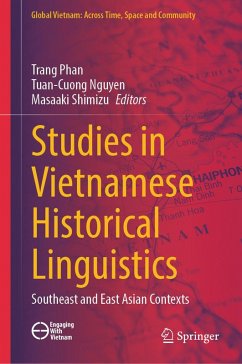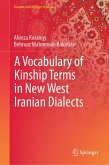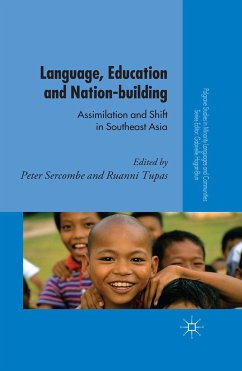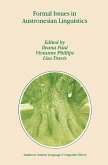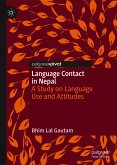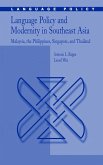This book facilitates constructive interdisciplinary dialogue among linguistics and philology specialists concerning various languages in Vietnam, East Asia, and Southeast Asia. The book's principal objective is to investigate the interdisciplinary nature of language change, with a particular focus on analyzing the structural and socio-cultural components of the evolution of specific linguistic phenomena over time. The book concentrates on the five primary language families in the East and Southeast Asian linguistic arena, namely Austroasiatic, Tai-Kadai, Sino-Tibetan, Austronesian, and Hmong-Mien. In doing so, it develops understanding of the extent to which language change is the result of language-internal mechanisms, prolonged contact with other languages within the same linguistic area, and the surrounding socio-cultural milieu. Given that Vietnam presents a linguistic microcosm of the East and Southeast Asia region, the book is divided into two sections. The first centers on historical linguistics relating to major languages based in Vietnam, including Vietnamese and its significant neighbors, Tay and Nung. The subsequent section examines the transformations observable in other languages prevalent across East and Southeast Asia that are historically, typologically, and geographically related to languages from Vietnam, including Chinese, Formosan, and Philippine languages, as well as Hmongic languages. A product of a workshop sponsored by the Harvard Yenching Institute held at the Institute of Sino-Nom Studies, this book encompasses a significant contribution to the field of Vietnamese historical linguistics, which has been notably underexplored in academic research. It is relevant to linguists, philologists, historians, anthropologists, and cultural scholars interested in Vietnam in particular, and the Southeast and East Asian cultural and linguistic landscape at large.
Dieser Download kann aus rechtlichen Gründen nur mit Rechnungsadresse in A, B, BG, CY, CZ, D, DK, EW, E, FIN, F, GR, HR, H, IRL, I, LT, L, LR, M, NL, PL, P, R, S, SLO, SK ausgeliefert werden.

